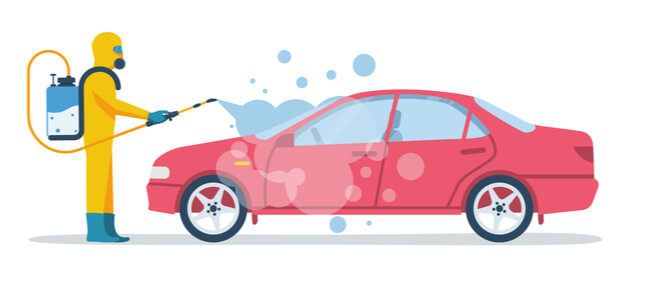Not Doing Your Research
One of the biggest mistakes that most people make is walking into the dealership without doing their homework.
It’s important to know the market rates and trends which has never been simpler, thanks to the internet.
With a few mouse clicks you can quickly see as many cars you want, filtered on the basis of items such as miles and condition, prices and offers, and more.
Knowing this information helps buyers to build price ranges, establish a realistic budget, and decide on the maximum price they’re prepared to pay.
Knowledge, as they say, is power. So, look and do your homework before you even bother to take the first test drive.
Starting To Look Before You Know Your Credit Score
Another common mistake that the majority of buyers make is not checking their credit scores.
Your FICO score determines if you’ll be approved for financing, if you’ll be able to access good rates and terms, and if you’ll receive pre-approval.
Make sure to check your credit score before you start looking at the vehicles you’re interested in.
If time permits, it’s a good idea to try and increase your score given it’ll help increase your chances to get better financing options.
Based on your score, you can get pre-approved, and this will help you access deals like 0% APR and low down payments.
Looking At The Monthly Payments And Not The Price
You must calculate what you’ll be paying on a monthly basis and over the term of the loan.
Buyers need to realize that lenders and dealerships often attempt to push for long-term loans.
Take a moment to calculate the total cost.
For instance, when you choose longer terms, your monthly payments will be less, but it also means that your loan repayment term will extend, so you’ll be paying more interest.
Also, it increases the chances of paying more than the car’s worth and going upside down on the loan.
Make sure to run your numbers using online calculators to better decide the preferred options.
Falling For The Add-Ons
Most dealerships persuade car buyers to purchase add-ons such as stereo, alloy wheels, interior finishing, window tints, and more.
All of these add-ons are generally overpriced and pushed on buyers so dealerships can make more money out of the sale.
These things don’t actually add any value to the car’s performance and it’s a good idea to avoid them.
If you still need these accessories, check the options available online or other physical stores.
You'll probably get a better rate compared to dealerships. Moreover, if you’re buying a luxury car, steer clear of these accessories as they’ll only impact the resale value.
Not Researching The Market For Financing
You need to be informed about the different financing options. Most buyers stick to financing from the dealership.
This only increases the amount you’ll pay as dealerships tend to add extra fees for helping to arrange the financing.
Check with banks, credit unions, and other available lenders. Collect as many quotes as you can to better understand what each has to offer.
These days, you can even try to get a preapproval online by submitting just a few details.
When you consider varied options, you’ll be able to negotiate better rates and terms.
This will not only help you save money, but it’ll also give you the much-needed leverage to persuade the dealer to grant discounts and offers to close the sale.
Bottom Line
Buying a car doesn’t have to be a bad experience. If you make informed decisions, you’ll obtain the best available deals.
Do your research, set your budget, and compare all the options to figure out what suits you best.
Use online calculators and comparison sites to get an estimate of what you’ll be paying monthly.
Look at additional options like trade-ins and a higher down payment to save even more on your purchase. Most of all, find a dealership that’s renowned and trusted by other buyers.





